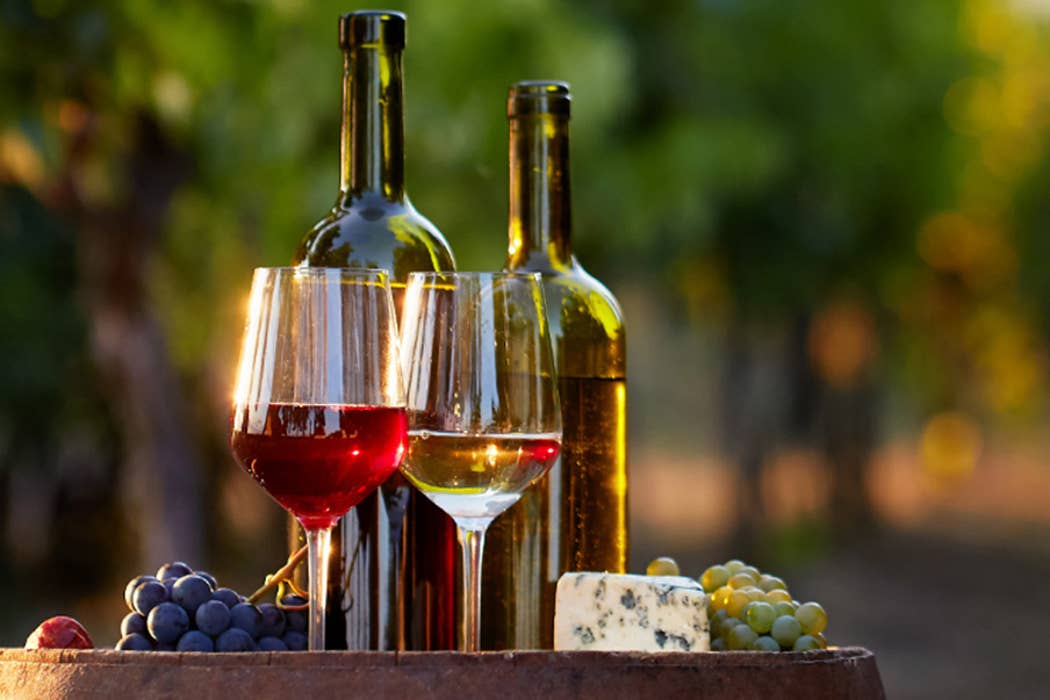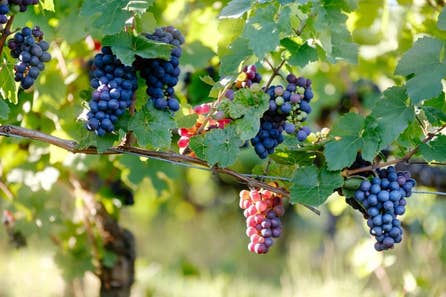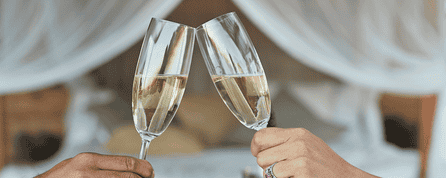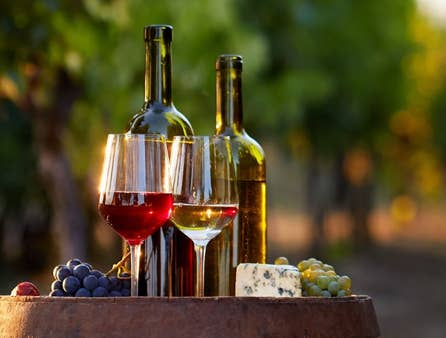Fine wines and vintage wines
Discover the art of fine wine and treat yourself to something very special.

Discerning when it comes to wine? Or perhaps you’re simply after a treat, or something to celebrate a special life moment?
Whether you’re looking for a fine wine to cellar, or a special bottle to enjoy right now, our selection of vintage wines has something for every wine lover. Let’s delve into how to find the right fine wine for your taste.
Related: Guide to the different types of wine
What makes wine a 'fine wine'?
When a wine is called a ‘fine wine,’ it’s no surprise it’s made with great skill and high-quality grapes. But there’s more to it than that.
Fine wines are made from premium grape varieties grown in ideal terroirs (regions with the right climate, soil, and conditions for producing top-tier grapes). It’s usually a good growing year as well (the ‘vintage’).
The winemaking process is precise and meticulous, focusing on balance, complexity, refinement and a layered mix of delicious flavours.
Importantly, fine wines improve with age, allowing their ‘character’ to mature and develop deeper flavours, making them even more desirable as time goes on.
They’re often limited in production, adding to their exclusivity and appeal.
The importance of vintage
Vintage refers to wines made primarily from grapes harvested (picked) in a specific year, with their quality influenced by that year's climate and growing conditions. It’s a time capsule of weather, origin and history for that year, that emerges in the wine you pour.
So, although a particular wine will come from the same vineyard and have the same name on the bottle, each vintage produces different wine characteristics.
A vintage wine will have a year printed on the label, indicating the harvest year. (Non-vintage (NV) wines, like many sparkling wines, don’t specify a year because they are a blend from multiple harvests).
Find your vintage
It can be hard to recognise what vintage to buy, unless you’re a wine connoisseur who stays up to date.
The truth is, most people just want a premium wine rather than a specific vintage. Luckily, we’ve done a lot of the heavy lifting for you with recommendations from our Wine Awards.
Give these a try. They’re all premium-quality wines at affordable prices. (Remember to take note of the vintage!)
Our pick of New Zealand’s best red winesOur pick of New Zealand’s best white wines
What's the difference between 'vintage' and 'fine wines'?
Not all vintage wines are considered ‘fine wines’—they’ve usually gained prestige due to an exceptional harvest.
Fine wines, however, are always from a great vintage.
How much does a great vintage wine cost?
While vintage wines can be more expensive, this isn’t always the case. It depends on the region and the winemaking techniques.
Globally, vintage wines from Bordeaux, Burgundy, and the Barossa Valley are highly sought after, with certain years being known for their exceptional quality. They will come with a higher price tag.
In New Zealand, we’ve developed a reputation for producing high-quality vintage wines, particularly Pinot Noir from Central Otago and red blends like Cabernet Sauvignon-Merlot from Hawke’s Bay, making it a go-to destination for discerning wine lovers.
If price is a factor, be reassured we’re spoiled for choice locally with fine, vintage wines from Australia and New Zealand, and you can pick up an excellent bottle at a good price.
Related:
Shop wine, beer & cider
1 / 0
FAQs
No, a wine isn’t considered vintage just because it’s old. Vintage wine refers to wine made from grapes harvested in a specific year, not just aged wine.
Some wines are meant to be enjoyed young, while others improve with age.
This depends on the wine variety and region. Some reds, like Bordeaux or Barolo, reach their peak after 10-20+ years, while many whites and lighter reds are best within 5-10 years.
A “good” vintage wine is one from a year when growing conditions were excellent.
The main rule is that at least 85-100% of the grapes must come from a single harvest year, depending on regional wine laws. Some regions, like Champagne, have stricter vintage classifications, with vintage years only declared in exceptional conditions.
Not always. While some vintage wines develop deeper flavours and complexity with time, others can lose their vibrancy if aged too long. The aging potential depends on the grape variety, winemaking process, and storage conditions.
Yes. Even well-aged wines can spoil if stored improperly or past their peak drinking window. Heat, light, and oxygen exposure can cause vintage wines to lose flavour or even turn into vinegar.
Related: Guide to storing wine.
Vintage wines from exceptional years are highly sought after, especially from prestigious regions. Limited supply, aging potential, and producer reputation also drive up the price. Some rare bottles become collectibles, further increasing their value.






















